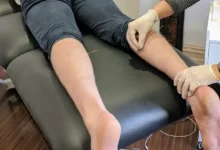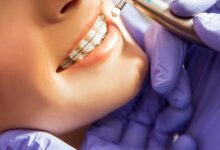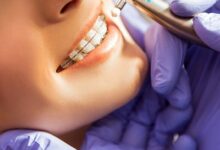
Top Eye-Care Tips That Everyone Should Know
Eyes are not just the window to the soul; they say a lot about your overall fitness. That means taking care of yourself means paying attention to your optical health as well. Want to know more about how to care for your eyes?
Keep reading this eyecare guide to learn the best eye-care tips for long-term health.
Table of Contents
Eat a Nutritious Diet
As with many aspects of health, the food you put in your body can benefit your eye health. Foods high in saturated fats like animal-based proteins, full-fat dairy products, oil, and butter contribute to high cholesterol, leading to constricted blood flow to the eyes. Excessive alcohol consumption also causes short and long-term eye issues.
A diet rich with nutrients great for eyecare advice are vitamins C and E, lutein, zeaxanthin, zinc, omega-3 fatty acids, and antioxidants. Here are some examples of nutritious foods to consider:
- Leafy green vegetables like spinach, romaine lettuce, kale, and collard greens
- Plant-based protein from beans, seeds, and nuts
- Fatty, oily fish like sardines, tuna, and salmon
- Citrus fruits
- Carrots
- Sweet potatoes
- Squash
Additionally, a well-rounded diet can help you lower your risk of diseases like type 2 diabetes and glaucoma, common causes of blindness. This eye doctor can tell you more about the impact of diet on eye health and offer more eyecare tips.
Exercise Regularly
In conjunction with our diet advice and eye health care tips, regular exercise can help you to reduce your risk of diseases like macular degeneration, glaucoma, and cataracts. Aerobic exercise lowers eye pressure and protects retinal cells. It also improves blood flow to the eye.
You can take simple steps toward building an exercise routine like walking, jogging up the stairs, parking farther away from store entrances, or trying out yoga. It also lowers your risk of diabetic retinopathy, hypertension, and elevated cholesterol.
Protect Your Eyes from UV Radiation
You wear sunscreen to protect yourself from harmful sun exposure that ages and damages skin. You can do the same for your eyes. Those UV-A and UV-B rays can harm eye health and increase your risk of conditions like macular degeneration, cataracts, corneal sunburn, surfer’s eye, photokeratitis, and melanoma of the eyelid.
Wear a pair of protective polarized sunglasses rated UV 400+ that block 99 to 100 percent of UV-A and UV-B radiation. And remember, regardless of whether it is overcast or cloudy, you still need to protect your eyes. There are special contact lenses for protection against solar radiation as well.
Give Your Eyes a Break
Did you know that the average person in the U.S spends 7 hours and 11 minutes looking at digital screens per day? Not only does spending excessive time in front of screens cause a lack of physical activity, trouble falling asleep, and headaches, but it also hurts your eyes.
Excessive screen usage causes dry eyes, blurry vision, discomfort, eye strain, and fatigue. It is believed that long-term usage of screens has also caused the rates of nearsightedness in America to rise significantly. Try the 20-20-20 method: after every 20 minutes of screen use, shift your gaze to something 20 feet away from you and look there for 20 seconds.
Eye-Care Tips to Live By
Taking care of your eyes does not stop with getting a routine exam. Your diet should be full of nutritious foods like leafy greens and plant proteins, get regular exercise, wear sunglasses, and take breaks from your screen.
If you liked these eye-care tips, share them with someone you know and check out the rest of our site for more informative posts!








